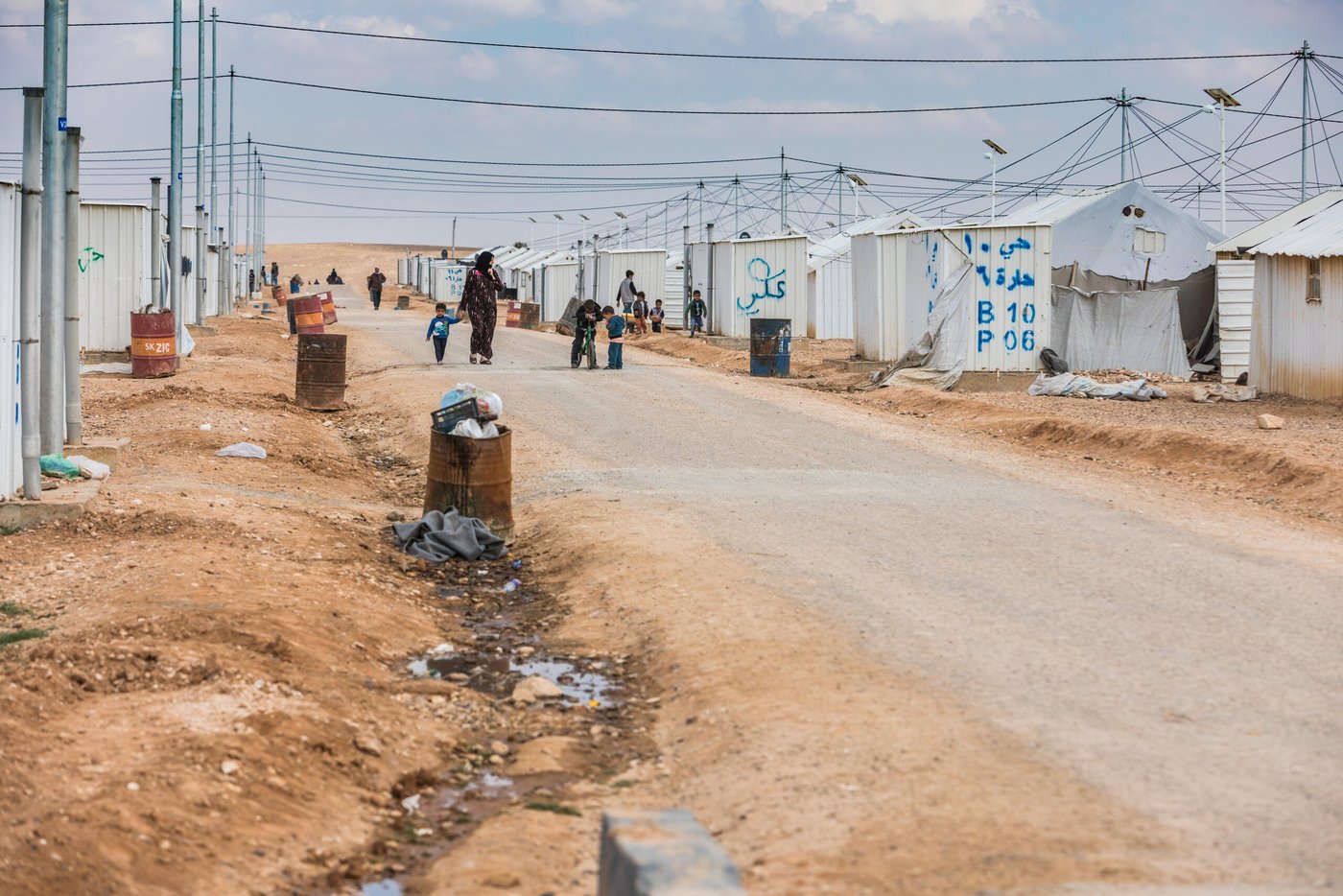The Norwegian Refugee Council (NRC), Plan International, CARE Jordan, and Action Contre la Faim (ACF) urge the international community to support Jordan to maintain conditions that allow refugees to make free and informed decisions about their future.
The vast majority of Azraq camp’s 40,500 residents remain dependent on aid. While the political transformation in Syria in December brought new hope for a solution to Syrians’ displacement, initial enthusiasm among refugees for a return to Syria this year has been overshadowed by deteriorated security at home. Refugees also reported being warned by friends and relatives who returned about the lack of basic services, housing or economic opportunities.
Surveys by ACF found that while in January, two-thirds of refugees in Azraq camp planned to return to Syria by the end of the year, this had dropped to one-third by April.
“We have observed a significant shift in attitudes among surveyed refugees, with increased concerns about returning to Syria in April 2025 compared to the more hopeful sentiments expressed in our January 2025 assessment,” said Hamida Jahamah, Country Director of Plan International Jordan. “Refugees cited serious worries around access to essential services such as healthcare, education, and livelihoods, should they return to areas still facing severe challenges.”
Amy Schmidt, country director of NRC in Jordan said: “Jordan has been a generous host to hundreds of thousands of refugees since the start of the Syria crisis and the Kingdom has committed that any returns to Syria must be voluntary. In order for returns to be truly voluntary, international assistance must be maintained to the most vulnerable communities, such as Azraq camp.”
A study by NRC found that if all humanitarian funding to Azraq camp were to cease, 90 per cent of the camp’s economy would disappear. Opportunities for families to support themselves in Azraq camp are scarce due to the isolation of the camp, surrounded by barren desert, as well as restrictions on people’s freedom of movement.
Camp markets are small and shrinking, especially since the political changes in Syria. Uncertain about the future, shop owners say people have stopped purchasing.
“Many shops in the camp have closed, and others just open to pass the time,” said Mohammad, a refugee and volunteer with NRC supporting camp businesses.
A recent needs assessment conducted by CARE Jordan in the camp has revealed that refugees’ inability to find work to meet basic needs was a major push factor driving people to consider returning to Syria.
Salam, a 24-year-old refugee, has lived in Azraq for 11 years. She has married, had a baby and divorced in the camp. Despite taking several training courses, she hasn’t managed to find a job in the camp. “Camp life is not
the life I dreamed of. Unless you get a scholarship to study, there are no options here. I want to leave the camp and have a home and a job, but our house in Daraa is ruined, and our relatives say don’t come back yet,” she said.
We urge the international community to ensure aid services and assistance in Azraq camp are maintained, as further worsening of conditions in the camp would risk pushing people to return to Syria before they are ready.
Notes to editors:
- Azraq camp for Syrian refugees opened on April 30, 2014, in Zarqa governorate in Jordan’s northeastern desert, after Zaatari camp reached capacity. The camp currently hosts 40,544 Syrian refugees (UNHCR).
- ACF conducted surveys in Azraq camp on Syrian refugees' sentiments regarding developments in Syria in January 2025 and April 2025, reaching 259 respondents and 256 respondents respectively. In January 2025, 68% of respondents said they intended to return to Syria within one year. This dropped to 32% among respondents in April 2025.
- In 2023, NRC produced an analysis of the economies of Zaatari and Azraq Refugee Camps, following an observational framework that analysed quantitative and qualitative data on the macroeconomic, microeconomic, and market levels. Modelling of the camp economy found that if the humanitarian community were to cease their economic support immediately, some 90 percent of the camp economy would disappear.
- CARE Jordan conducted a needs assessment in Jordan in February and March 2025 using quantitative and qualitative methods, including a survey of 385 respondents in six governorates and 12 focus group discussions. This identified economic hardship as the primary push factor for refugees to return, with 97% of respondents citing financial difficulties. The forthcoming report provides insights into the return intentions of Syrian refugees and the needs of those remaining in Jordan.
- Plan International Jordan conducted an assessment on the evolving needs and aspirations of Syrian youth in Jordan’s host communities and refugee camps to ensure program relevance amid changing regional conditions. A mixed-methods approach was used, including a quantitative survey with 237 youth (104 males, 133 females) and qualitative focus group discussions with parents and volunteers.
For information or to arrange an interview, please contact:
- NRC's global media hotline: media@nrc.no, +47 905 62 329
- Shaden Abdulrahman, NRC Jordan communications coordinator, shaden.abdulrahman@nrc.no +962 301 0015


